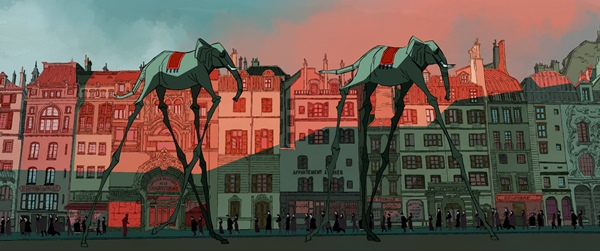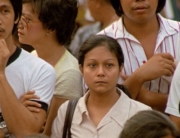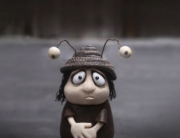After two consecutive, and provocative, surrealist films (Un Chien Andalou, 1929, and L’âge d’Or, 1930), hailed today as masterpieces, Luis Buñuel’s rising career as a filmmaker was momentarily blocked by closed doors and unanswered calls. L’âge d’Or was perceived as scandalous and blasphemous, which made Buñuel a bad bet for future investors. Also, the Spanish director’s early work was fully associated with surrealist painter Salvador Dalí, who collaborated in the creation of both films. On his own, Buñuel had much to prove and little support to move forward until he found an anthropological study about an impoverish backwater in northern Spain, Las Hurdes. Then he imagined that it might be the perfect place to make something completely different beyond the surrealist school and reaffirm his individual talent. The short “documentary” Las Hurdes: Land Without Bread (1933) was the result.
The history about how this film was made is filled with funny anecdotes, adventures, provocations, and moments of evil genius that are as legendary as the film itself, which is still discussed passionately as a not so reliable documentary. So it’s not a surprise that the behind-the-scenes drama could have inspired a movie. What is startling is that has been re-created in the form of an animated movie, with inserts from Buñuel’s film. The Spanish filmmaker Sálvador Simó has adapted the graphic novel by Fermín Solís and pays tribute to surrealism with visual touches, like Buñuel imaging towering elephants with stilt-like legs (see photo above).
The story is a faithful tale of the actual events. After being booed at a L’âge d’Or screening, Buñuel (voiced by Jorge Usón) receives funding for his next project, but only because of a curious promise. A friend, artist and anarchist Ramón Acín (Fernando Ramos), buys a lottery ticket and affirms that if he wins, he will then finance the filmmaker’s next project. Fortune is in Acin’s favor, so both men travel to Las Hurdes, along with cameraman Eli Lotar (Cyril Corral) and writer Pierre Unik (Luís Enrique de Tomás).
Even if the characters are expressive and animated with vivid colors, this is not a children film (it contains brief nudity and some profanity) nor an innocuous tale about the creation of a work of art. The director is portrayed as an arrogant and whimsical man trying to find his artistic identity in spite of the insecurities that haunt his dreams in the form of his father’s rejection. For the sake of art perfectionism, Buñuel is stubborn enough to make decisions that could easily be considered cruel and exploitative.
Today it’s common knowledge that the realization of Las Hurdes was heavily staged and editorialized. Extreme actions, such as shooting goats off cliffs or leaving a donkey at the mercy of wild bees, have produced indelible images, more in key with the surrealist spirit than a social protest. The same inflexibility and loose work ethic were behind the camera to record sick children, dead babies, and people with disabilities with the intention of accusing institutions of inaction and mocking the hypocrisy of the Catholic Church. Whatever Buñuel’s intentions were, Las Hurdes had no chance to inspire a positive change for the inhabitants of Las Hurdes, because soon Spain faced civil war and the establishment of Franco’s fascist regime. However, its legacy in the history of cinema is everlasting.
Buñuel in the Labyrinth of Turtles provides an engaging insight on Buñuel’s undeniable talent and how hard it was to deal with him, but the result never transcends above the reenactments of already known anecdotes. Dream sequences are beautifully drawn, but they end in a reductive Freudian and unnecessary lecture about Buñuel’s psyche—the rich complexity and symbologies of Buñuel’s cinema made fun of this kind of interpretation. However, for anyone who knows little about the filmmaker or Las Hurdes, this animated film would be a splendid invitation to discover an essential artist who has always inspired generations of filmmakers.

















Leave A Comment